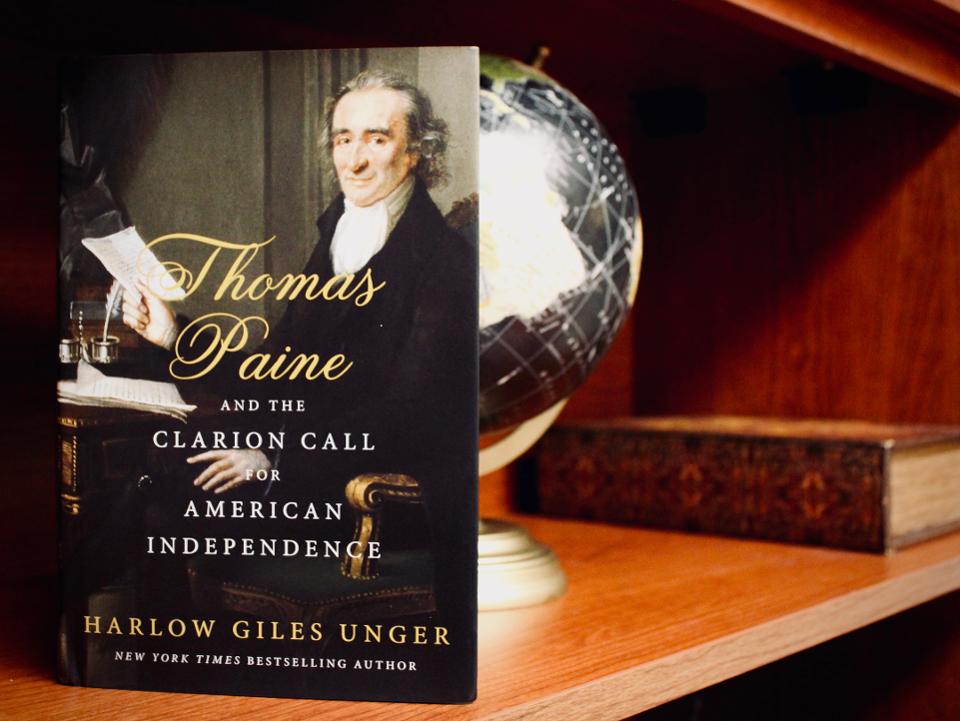
Can you be a committed activist born at a moment of radical change and have a personal life that fulfills all the social goals. Thomas Paine’s life story as told by Harlow Giles Unger in his book Thomas Paine and the Clarion Call for American Independence teaches me the details of a life that I knew only as a heading lost in a textbook chapter.
Thomas Paine was born in England but he argued that royalty was an elitist and bad form of government which kept citizens as subjects. The power of the King was backed by “divine right.” In other words, the King was chosen by God, so crimes against the King were sins against God and any person who slandered the King (in this case George III) was a traitor who could be burned at the stake, disemboweled, hung, or any two of the aforementioned horrific ways to die. Was it brave or foolish to argue against royalty as a viable form of government in 18 th century England?
Thomas Paine had to get out of town. He ended up in the American colonies just as the colonists were rebelling against the taxes levied by George III, the troops being quartered in their homes. This was a rebellion that Paine understood. This was a historical moment ripe for Paine’s ideas. He published an inflammatory pamphlet which opened with this famous line; “These are the times that try men’s souls” and he signed himself by the pseudonym ‘Common Sense.’ As the war ran into difficulties with recruitment he published more articles, also signed Common Sense. He knew George Washington and Thomas Jefferson and other founders. He was a Quaker, nonviolent, but he picked up a rifle and joined the fight. We know who won the Revolutionary War but I did not know how many setbacks Washington had on the way. Victory was a near thing until France got involved and that was in response to entreaties from Thomas Paine.
Sadly Thomas Paine was very poor and had to depend on kindnesses from friends. In his years in America he was considered good company. He was eventually given some properties. But Paine did not stay in America. He returned to England to try to see his mother before she died, but he was too late. He was still a wanted man in England and had to go to France. Not everyone knew he was ‘Common Sense,’ but important people did. Paine arrived in Paris in time for the beginnings of the French Revolution which , of course, he championed. But after being greeted as a hero his life went off track in France. While in a French prison he finished a new treatise, The Age of Reason, in which he managed to alienate almost everyone. I have to leave you something to uncover for yourselves, so I will end with Paine ill and imprisoned, but that is not the end of his life or the book. I will say that if people had talked about such a thing as work/life balance during Paine’s lifetime that might have been a message he needed to hear. He was a great man with ideas ahead of his times but apparently life is not always a lark just because you are famous. Activism has consequences.